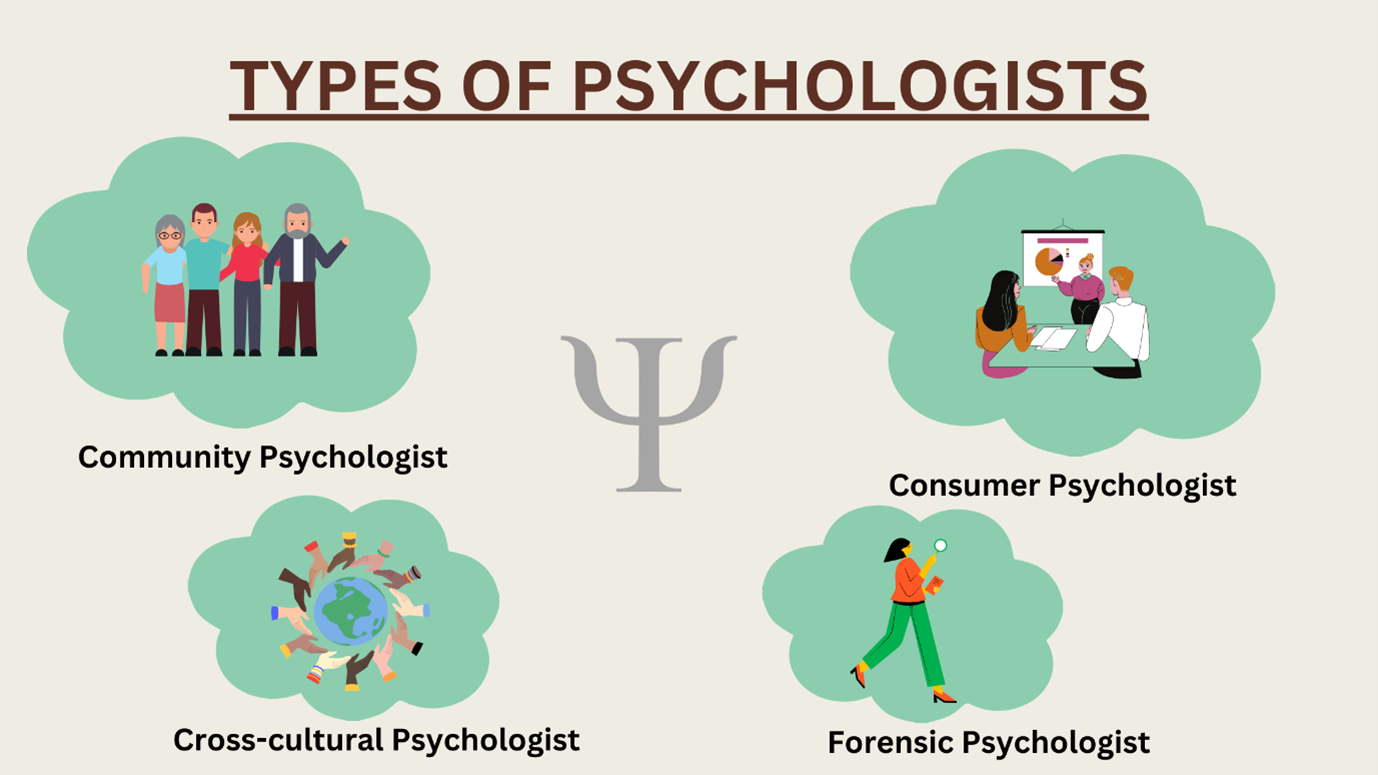The Significance of Looking For Aid from the Best Psychologist in Delhi for Stress Management
The Significance of Looking For Aid from the Best Psychologist in Delhi for Stress Management
Blog Article
The Function of Psych Therapy in Managing Stress And Anxiety and Clinical Depression
Psychotherapy has actually emerged as a cornerstone in the administration of anxiety and clinical depression, providing customized treatments that vary from Cognitive-Behavioral Treatment (CBT) to mindfulness-based approaches. These techniques not just help people in determining and restructuring negative idea patterns but also foster present-moment recognition, minimizing the tendency to ruminate.
Recognizing Anxiety and Anxiety
Understanding anxiousness and clinical depression calls for a comprehensive consider these prevalent psychological health conditions, which typically exist together and dramatically impact an individual's life. Stress and anxiety is identified by consistent, too much worry and fear regarding day-to-day scenarios. Signs and symptoms include uneasyness, fast heart rate, and problem concentrating. Alternatively, anxiety shows up as a prevalent feeling of vacuum, despair, or sadness, frequently come with by a loss of interest in previously taken pleasure in tasks, modifications in hunger, and sleep disturbances.
The coexistence of anxiousness and clinical depression can make complex and aggravate signs medical diagnosis and therapy. People dealing with both problems may experience much more extreme signs and symptoms, better impairment in social and work-related functioning, and a much longer duration of illness. This comorbidity requires a nuanced understanding and method to therapy.
Cognitive patterns like adverse reasoning and maladaptive actions can perpetuate these conditions. Comprehensive evaluation by mental health and wellness experts is vital to determine the presence and extent of these problems, paving the way for tailored healing strategies.
Kinds of Psychiatric Therapy
Psychiatric therapy, also referred to as talk treatment, encompasses a variety of treatment methods created to ease signs of anxiousness and depression by addressing the underlying emotional and emotional issues. Different sorts of psychotherapy are tailored to fulfill the unique requirements of people, providing a variety of approaches to psychological wellness care.
One extensively made use of kind is psychodynamic treatment, which concentrates on understanding and settling unconscious disputes coming from early life experiences. By exploring these deep-rooted problems, patients acquire understanding right into their current actions and emotion.
Interpersonal Therapy (IPT) is an additional effective method that concentrates on enhancing social connections and function to reduce depressive signs. It commonly attends to concerns such as sorrow, function shifts, and interpersonal conflicts.
Humanistic therapies, such as Client-Centered Therapy, emphasize personal development and self-actualization. Best Psychologist in Delhi. These approaches produce a supportive atmosphere where individuals can discover their sensations and develop a stronger sense of self
Last But Not Least, Dialectical Behavior Modification (DBT) incorporates cognitive-behavioral techniques with mindfulness practices. Initially established for borderline personality condition, DBT has actually been adapted to treat stress and anxiety and clinical depression by training skills in distress tolerance, emotional policy, and interpersonal efficiency.
These varied psychotherapeutic strategies use multiple paths to psychological health and wellness, satisfying individual preferences and therapeutic demands.
Cognitive-Behavioral Treatment (CBT)
Among the various psychotherapeutic methods, Cognitive-Behavioral Treatment (CBT) sticks out for its organized, goal-oriented method in treating stress and anxiety and clinical depression. Created by Aaron T. Beck in the 1960s, CBT is predicated on the concept that maladaptive reasoning patterns contribute considerably to psychological distress and behavior issues. By determining and reorganizing more information these unfavorable idea patterns, CBT aims to reduce signs and symptoms and foster much healthier cognitive procedures.
CBT is generally short-term, extending 12 to 20 sessions, and involves a joint initiative in between specialist and patient. The treatment encompasses a variety of methods, consisting of cognitive restructuring, direct exposure treatment, and behavior activation. Cognitive restructuring focuses on testing and customizing altered cognitions, while exposure treatment progressively accommodates people to anxiety-provoking stimulations, minimizing avoidance habits. Behavioral activation seeks to raise engagement in satisfying tasks to combat depressive states.
Empirical evidence emphasizes the effectiveness of see this page CBT, with many studies showing its efficiency in lowering signs of stress and anxiety and depression. This healing approach has been adapted for various populaces and setups, confirming flexible and adaptable. Its structured nature, empirical support, and concentrate on skill procurement make CBT a foundation in the psychotherapeutic therapy of anxiousness and depression.
Mindfulness-Based Techniques
Mindfulness-Based Techniques have actually amassed considerable focus recently as effective interventions for anxiousness and anxiety. Rooted in ancient meditation methods, these strategies aim to grow an increased recognition of the here and now moment, which can assist individuals disengage from the ruminative idea patterns frequently connected with anxiousness and depressive disorders.

In A Similar Way, Mindfulness-Based Cognitive Treatment (MBCT) integrates principles from Cognitive-Behavioral Treatment (CBT) with mindfulness techniques. MBCT is specifically effective in stopping relapse in individuals with frequent clinical depression. By acknowledging very early indication of depressive episodes, individuals learnt MBCT can use mindfulness practices to reduce the onset of full-blown episodes.
Advantages of Psychiatric Therapy
Various research studies have actually shown the profound advantages of psychiatric therapy for individuals facing stress and anxiety and anxiety. Among the vital advantages is the improvement of emotional guideline. Psychiatric therapy gears up clients with dealing approaches to handle distressing emotions, thereby minimizing signs and symptoms of stress and anxiety and clinical depression. Cognitive-behavioral treatment (CBT), as an example, helps people recognize and challenge unfavorable thought patterns, promoting a more balanced click to investigate and favorable outlook.
Moreover, psychiatric therapy offers a structured setting for self-exploration and understanding. By discussing their experiences and feelings with a qualified therapist, individuals can uncover underlying problems contributing to their psychological wellness struggles. This self-awareness is a crucial step toward lasting healing and resilience.
An additional substantial advantage is the improvement of interpersonal skills. Anxiety and anxiety often stress partnerships, causing isolation. Through therapeutic interventions, patients find out effective interaction and conflict-resolution skills, which can boost their interactions and foster encouraging partnerships.
Furthermore, psychiatric therapy provides a tailored approach to therapy. Ultimately, the advantages of psychiatric therapy extend beyond signs and symptom alleviation, contributing to total well-being and high quality of life.

Conclusion
Psychotherapy significantly adds to the management of stress and anxiety and anxiety by using efficient coping methods and a safe setting for self-exploration. Methods such as Cognitive-Behavioral Therapy (CBT) and mindfulness-based strategies are instrumental in determining and restructuring negative thought patterns, while advertising present-moment recognition. These customized interventions not just alleviate signs but additionally improve psychological policy and social abilities, thus improving general wellness and top quality of life for people facing these psychological wellness difficulties.
Psychiatric therapy has arised as a cornerstone in the monitoring of anxiety and clinical depression, using tailored treatments that vary from Cognitive-Behavioral Treatment (CBT) to mindfulness-based techniques.Recognizing anxiousness and anxiety calls for a thorough look at these common psychological health and wellness problems, which typically exist together and significantly influence a person's day-to-day life.Among the various psychotherapeutic methods, Cognitive-Behavioral Treatment (CBT) stands out for its structured, ambitious strategy in treating anxiousness and anxiety.Numerous studies have actually demonstrated the profound benefits of psychiatric therapy for people grappling with anxiety and anxiety. Psychiatric therapy gears up clients with coping approaches to handle traumatic feelings, thereby reducing signs and symptoms of stress and anxiety and clinical depression.
Report this page